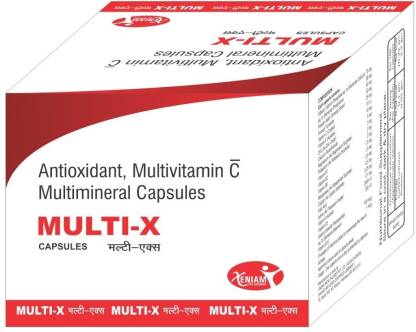
These healthy tips for men will help you feel great and look great. You can live a happier life by exercising, eating healthy food, and getting enough sleep. You must also manage your stress. Here are some more health tips and tricks for men. These are simple to apply, and you might be surprised at how easy they are! Here are the top and most effective ways you can keep your health in check.
Exercise
A good exercise routine involves two and a half hours of vigorous physical activity a couple of times per week. For men to keep their posture good and avoid injury, they should do resistance training. Another important aspect of a healthy workout regimen is flexibility exercises. Men can get the most out of their exercise routine by including a variety of activities into their daily lives. Exercise is the key to overall wellness. Here are some tips to get you started.
Eating right
A reduction in red meat intake is essential for men's good health. Beef is an excellent choice as it is rich in protein, iron and vitamin B12. Lean meat is also a good option as it provides twenty to twenty-five g of high-quality proteins per three-ounce container. Avoid red meats and processed meats. Here are some tips to eat right for men:
Stress management
While men are less likely than their female counterparts to seek help with mental health issues, they are just the same for physical problems. Suicide rates in men are higher that those in women. Stress is bad for your wellbeing and health. It is essential that you understand this to help you cope. Talking to your doctor about your symptoms is a good idea. Good health and stress management are important to your overall well-being.

Get enough sleep
It is essential to get adequate sleep for your physical health. A lack of sleep can make many men feel tired and irritable throughout the day. Even worse, it can cause drowsiness when driving. Men are usually busy and so tiredness is a normal part of their day. Family responsibilities, work, and hobbies can fill a man's day before you know it. Because of this, men often sleep later than they should.
Avoid drinking alcohol
Drinking alcohol can have many harmful effects on the body. It can affect the functioning of your family, job, school, relationships, and activities. Drinking can also cause dangerous situations like driving under the influence. Drinking alcohol can make you more susceptible to anxiety, depression, and other health issues. Here are some reasons that alcohol should be avoided. These are just a few of the many benefits of avoiding alcohol for men.
Regular checkups
Regular checkups for men are essential to your overall health. Regular health screenings can help prevent serious conditions and reduce the likelihood of death or disability. You may need additional tests, depending on your family history and age. Consider how long ago it has been since your last screening. In addition, be sure to review your health care owner's manual for a schedule of screenings.
Get treatment early
Despite stigmatizing mental health issues, men are more likely to experience them than women. Anxiety is more common among men than it is for women. Men are 3 times more likely to attempt suicide than their female counterparts. Both men as well as women should seek mental health treatment. Physicians should be available for consultations. Men should let their doctors know of changes in their hygiene or sleep patterns, as well as mood swings.

FAQ
What is Positive Psychology & Why is It Important?
Positive psychology looks at what makes us feel better. Positive psychology aims to make people happier, healthier, more wiser, and better through self-improvement.
Two types of positive psychology exist: trait positive psychology (or process positive psychology). Trait positive psychology studies how people naturally tend to behave. Process positive psychology studies how we can use certain strategies to achieve specific goals.
Why is mental health so important?
Play, work, learning, and love are all important. Mental health is about our overall well-being. When we refer to mental health, we mean the physical, psychological and spiritual factors that have an impact on us every day. There are many options for taking care of yourself mentally and physically as well as emotionally, spiritually, financially, and socially. You don’t have to do it all. Just get started!
The first step towards improving your mental health is understanding where you stand now. To find out if your support system is adequate, take this quiz. If your score is low, you may want to make some lifestyle changes.
Let's say you got a high score. Congratulations! Take a look at the specific steps you can take to maintain and improve mental health.
-
Get enough sleep Get enough sleep to keep your brain alert and stimulated. The American Academy of Pediatrics (AAP) recommends that you get at least 7-8 hours of sleep each night.
-
Exercise Regularly. Exercise releases endorphins, which make you happier and less likely stress. Try to do 30 minutes of exercise five days a week.
How does mental health affect my relationships?
Your mental well-being has a direct impact on all aspects of your life. It impacts your ability to function properly at home, school, and work. Mental health issues can also make it challenging to form meaningful relationships.
It's easy for people to judge you when you have a mental illness. You might even avoid social situations if you feel like no-one understands.
However, it's important to remember that people want to be around you. You only need to teach them how to approach you.
So, if you're having trouble connecting with others, try talking to them about your feelings. You can tell them what you feel and ask for their help.
What are some signs of mental-emotional difficulties?
Any condition that causes major distress or impairment in functioning can be considered mental disorder. Some examples of mental disorder include anxiety, depression, schizophrenia.
How can I improve my mental health?
Mental health is important for everyone, especially when we are stressed out from work, school, family, etc. You can improve your mental health by exercising regularly, eating healthy foods, sleeping well, and spending quality time with family members. Exercise can increase endorphins, which make us happier. Our bodies also function better when we eat healthy foods. Sleeping well gives us energy throughout the day. Spending quality times with loved one improves relationships and reduces stress.
Is it possible that I am depressed?
Depression is a very common problem for teens. It is important to recognize that depression affects many teens.
This does not mean you are weak or crazy. Most people who feel depressed don’t realize it. Depression is a medical condition.
There are many types of depression. Some people feel only sadness. Others experience other emotions. There are many levels of severity.
There are mild cases and severe cases of depression. It's important to understand that depression isn't always bad. Sometimes, depression helps us to cope with stressful events.
If you feel constantly tired or sad, consult a doctor. Your doctor will diagnose you and recommend treatment.
What are the five ways to improve wellbeing in your life?
A person's well-being can be defined as their "state of mental, physical, spiritual, or social well-being". Several factors affect our well-being, such as family, work, health, relationships, community, environment, education, finances, etc. Your first step in improving well-being and your quality of life is to identify which areas need improvement. Next, take steps to improve these aspects.
Here are five easy ways to improve your wellbeing
-
Exercise - This increases endorphin levels, which makes us happier.
-
Sleep – A longer sleep time reduces stress and anxiety.
-
Nutrition - Healthy eating (such as fruits, vegetables and meats) can improve your mood.
-
Meditation – Meditation reduces stress and anxiety.
-
Socialization - Spending quality time with friends and family makes us happy.
Statistics
- More than 50% will be diagnosed with a mental illness or disorder at some point in their lifetime.3 (cdc.gov)
- According to the National Alliance of Mental Illness (NAMI), one in five Americans experiences mental health issues which translates to more than 40 million adults a year. (doctorondemand.com)
- Neuropsychiatric diseases are the leading cause of death and disability in the U.S., accounting for 18.7 percent of all years of potential lifespan loss and premature mortality.
- More than 40 million adults in the United States have an anxiety disorder, but less than 37% of people seek mental health treatment for their symptoms. (talkspace.com)
- It means no drinking any alcoholic beverages and no taking any drugs that aren't 100% natural.
External Links
How To
How to improve memory
Memory is one of those things that everyone wants to be able to remember better. Memory loss happens to everyone at some time. In fact, more than half of Americans over 65 suffer from some form of dementia.
You have many options for improving your memory. Here are three simple steps to take right away:
-
Get more fruits and vegetables. Vegetables and fruit contain vitamins, minerals, antioxidants, fiber, and other phytochemicals that can improve brain function. They also contain essential nutrients that protect against neurological disorders.
-
Get enough sleep. Poor concentration and memory loss have been linked to sleep deprivation. Make sure you get seven to eight hours of restful sleep each night.
-
Take a walk. Walking stimulates blood flow, which increases memory. Plus, walking helps keep weight off your belly, so you look slimmer and healthier.